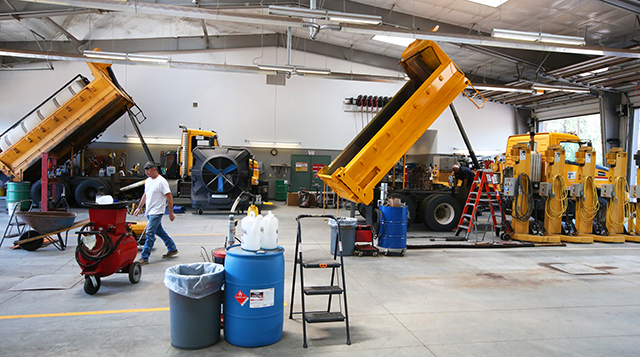Coping with
Published 12:00 am Saturday, April 19, 2014

- Author Bridget McGinn with her son, Ian
by Bridget McGinn, for The Bulletin Special Projects
Photos by Kevin Prieto
Trending
When people ask me how I’m doing on my own since my son, Ian, went off to college, my usual response is, “Oh, I’m doing fine.” But that’s not 100 percent true.
The truth is that the grief and sense of loss I feel is immense. I have come to realize that I seriously underestimated the impact that this life transition was going to have on me.
My friend, Debbie Coehlo, a development and behavioral specialist with Juniper Pediatrics and the mother of two grown daughters, reassured me that this is quite common.
“Our societal expectation is that, yeah, you will be probably be a little lonely, but you will find things to do,” Debbie said. “When the reality is that you will need to hold space within for a huge transition.”
Recognizing and honoring that this is a major transition period in your life can be important.
“Give yourself permission to grieve,” said my friend Kathy Nagel, a counselor based out of Hawthorn Healing Arts Center and the mother of four. “And know that your timeline is your timeline. Many people may inject their opinions into your process, and it is important to find friends who have gone through similar experiences and even professional resources to support you, if needed.”
Trending
For the first two weeks after Ian left, I wore an oversized hooded sweatshirt emblazoned with the name of his school almost every day. It became a sort of security blanket that helped me to feel comforted and closer to my son.
Debbie shared with me that her daughter left behind a coat that she often wears, especially when she is really missing her. Kathy confessed that when her youngest child left home, she cried at the drop of a hat for two years.
“I’ll admit that to people, and they will say that they did the same thing,” Kathy said.
She found that there were certain times when she felt especially vulnerable, such as around 3 p.m., the time when her children would normally come home from school. Sunday evenings around dinnertime were also difficult.
Being aware of these times and working to establish new traditions and connections with your children can help, said Kathy.
For Debbie, the evening hours are particularly challenging, as that is when she normally spent time helping her daughter edit her homework papers. She deeply felt the loss of connection and communication that the shared activity held.
“I really wondered how I was going to spend those hours,” said Debbie.
Debbie was pleased when her daughter began emailing her assignments and papers, asking for editing advice and input. Together, they found a new way to communicate, stay connected and support one another.
When Ian first left for college, we made an agreement that we would speak on the phone every Sunday, which was comforting to me. I have found that we actually text each other during the week quite often — little messages or snapshots go a long way toward maintaining a feeling of closeness.
As time has passed, I have learned that being physically apart hasn’t impacted our ability to be connected.
“The first two years are the hardest,” said Kathy. “It does get progressively easier to let go. It is important to trust your child plus trust your parenting and all the hard work you’ve put in raising your child. Your job was teaching them skills, but now your job is to be a safety net for your child.”
This can be an exciting and also scary opportunity for parents to learn about themselves, Kathy said. She went back to graduate school to further her education. Debbie found that she now has time to rediscover her love of cross-country skiing, an activity that neither of her daughters particularly enjoyed.
Personally, I have been exploring different cultures and languages through a newly developed obsession with Asian television dramas. Having more time to pursue or discover your own interests and passions can be a beneficial thing.
“Kids give you a sense of identity,” Kathy said. “I hear people say all the time that they have spent many years hiding behind their kids and that now they need to face themselves. It is all about letting go of the life that was and moving into the life that is.”
The conflict between the grief of deeply missing your child and the joy in watching them learn to spread their own wings can be confusing.
Selfishly, I would love to have my son here with me because I truly love him and enjoy his company. At the same time, I am delighted to see him learning and growing, and I am filled with pride to see the fine young man he is becoming. That probably wouldn’t be possible if he never left the nest of our home.
Debbie sums it up perfectly when she said, “I often think, ‘Would I choose anything else?’”








